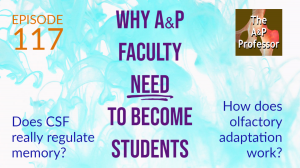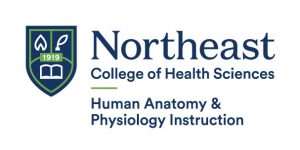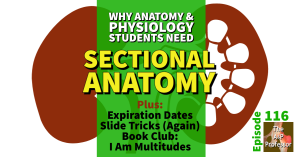Sure, we're all life-long learners. But taking an actual college course from time to time throughout our teaching career can have unexpected benefits. Olfactory adaptation helps a lot when visiting the zoo, of course, but how does it really work? Researchers have found some new answers. Did you know that cerebrospinal fluid affects the process of memory? It does and we'll find out how.
00:00 | Introduction
00:43 | Olfactory Adaptation
06:23 | Sponsored by AAA
07:06 | CSF and Cognitive Decline
10:57 | Sponsored by HAPI
11:47 | Enrolling as a Student in a Course
21:33 | Sponsored by HAPS
22:24 | Lessons from Being a Student
36:03 | Staying Connected
★ If you cannot see or activate the audio player, go to: theAPprofessor.org/podcast-episode-117.html
🏅 Apply for your credential (badge/certificate) for listening to this episode: theAPprofessor.org/podcast-episode-117.html/#badge
❓ Please take the anonymous survey: theAPprofessor.org/survey
☝️ Questions & Feedback: 1-833-LION-DEN (1-833-546-6336)
✔️ Follow The A&P Professor on Twitter, Facebook, Blogger, Revue, Tumblr, or Instagram! @theAPprofessor
📰 Get the thrice-weekly TAPP Science & Education Updates theAPprofessor.org/updates
Education is not preparation for life; education is life itself. (John Dewey)
Olfactory Adaptation
6.5 minutes
We know that olfactory adaptation reduces perception of an persistent odor so that we can monitor our environment for new odors. But how does it work? This segments reveals some of those mysteries.
★ Olfactory Neurons Adapt to the Surrounding Environment (brief article explaining the new research) AandP.info/nxt
★ Transcriptional adaptation of olfactory sensory neurons to GPCR identity and activity (research article in Nature Communications) AandP.info/unm
Sponsored by AAA
40 seconds
A searchable transcript for this episode, as well as the captioned audiogram of this episode, are sponsored by the American Association for Anatomy (AAA) at anatomy.org.
Don't forget—HAPS members get a deep discount on AAA membership!
CSF and Cognitive Decline
4 minutes
Factors in cerebrospinal fluid (CSF) help regulate oligodendrocyte development and myelin sheath health in the hippocampus. Myelinization in the hippocampus affects memory. As we age our CSF factors decline and put us at risk of memory loss. New research shows that restoring those factors can reverse memory decline. Listen and find out more!
★ Young cerebrospinal fluid improves memory in old mice (brief news post in Nature) AandP.info/be3
★ Young CSF restores oligodendrogenesis and memory in aged mice via Fgf17 (research article in Nature) AandP.info/m0a
Sponsored by HAPI Online Graduate Program
47 seconds
The Master of Science in Human Anatomy & Physiology Instruction—the MS-HAPI—is a graduate program for A&P teachers, especially for those who already have a graduate/professional degree. A combination of science courses (enough to qualify you to teach at the college level) and courses in contemporary instructional practice, this program helps you be your best in both on-campus and remote teaching. Kevin Patton is a faculty member in this program at Northeast College of Health Sciences. Check it out!
Enrolling as a Student in a Course
10 minutes
Enrolling as a student in a college course can have benefits for faculty. Being mindful of the student experience—intentionally avoiding a focus on using our "teacher lens" —can help immerse us in being a student for a change. Besides helping us avoid burnout, there are other benefits.
★ Burnout! A Chat with Rebecca Pope-Ruark | TAPP 91
Sponsored by HAPS
48 seconds
The Human Anatomy & Physiology Society (HAPS) is a sponsor of this podcast. You can help appreciate their support by clicking the link below and checking out the many resources and benefits found there. Watch for virtual town hall meetings and upcoming regional meetings!
Lessons from Being a Student
13.5 minutes
What can we use from a student experience in a course to help us improve our teaching and our course? A lot, it turns out.
★ Supporting Returning Learners | Episode 9
If the hyperlinks here are not active, go to TAPPradio.org to find the episode page.
★ More details at the episode page: theAPprofessor.org/podcast-episode-117.html
★ Transcript available in the transcript box: theAPprofessor.org/podcast-episode-117.html
★ Need help accessing resources locked behind a paywall? Check out this advice from Episode 32 to get what you need! my-ap.us/paywall
Take The A&P Professor experience to the next level!
★ theAPprofessor.org/community
Earn cash by referring other A&P faculty to this podcast:
Tools & Resources
★ TAPP Science & Education Updates: theAPprofessor.org/updates
★ Amazon: amzn.to/2r6Qa3J
★ Text Expander: theapprofessor.org/textexpander
★ Rev.com: try.rev.com/Cw2nZ
★ Snagit & Camtasia: techsmith.pxf.io/9MkPW
★ Krisp Free Noise-Cancelling App: theAPprofessor.org/krisp
★ JotForm (build forms for free): theAPprofessor.org/jotform
★ The A&P Professor Logo Items: https://www.teepublic.com/stores/the-a-p-professor
Sponsors
★ Transcript and captions for this episode are supported by the American Association for Anatomy | anatomy.org
★ The Human Anatomy & Physiology Society provides marketing support for this podcast | theAPprofessor.org/haps
★ Distribution of this episode is supported by the Northeast College of Health Sciences online graduate program in Human Anatomy & Physiology Instruction (HAPI) | northeast.edu/hapi
Clicking on sponsor links helps let them know you appreciate their support of this podcast!
Follow The A&P Professor on Twitter, Facebook, Blogger, Revue, Tumblr, or Instagram @theAPprofessor
The A&P Professor® and Lion Den® are registered trademarks of Lion Den Inc. (Kevin Patton)
As an Amazon Associate I earn from qualifying purchases. I may be compensated for links to sponsors and certain other links.
Click here to listen to this episode—or access the detailed notes and transcript.





